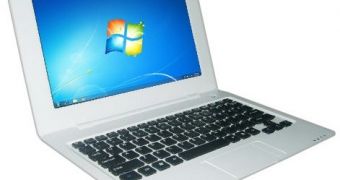It seems that, in an attempt to at least preserve their netbook shipment levels, some suppliers of mobile PCs have begun to specifically cater to the needs of the educational marker.
When they really kicked off, netbooks were popular because of their very low price points, at least compared to other laptops.
This is what let them sell spectacularly well even during times of severe economic recession, and they can be said to have actually saved, more or less, the businesses of more than one PC maker.
Even at the start of 2010 they were believed to be on track to keep growing over the next few years.
Granted, the new tablet market put a dent in these forecasts, as growth has slowed significantly, but they are still selling by the millions every month.
So far, they have mostly been bought as supplements or complements for a desktop or a high-end laptop, as they are more portable and have longer batter lives.
With slates gradually replacing them in this area, it falls to their makers to search for new opportunities.
A recent Digitimes report now says that the educational market is one of the most likely to be strongly tackled next.
Demand for low-end notebooks is said to be gradually rising, and special-purpose models have already been developed.
HP's Mini 100e is one of the examples, being a 10.1-inch unit with exclusive educational software. Dell also has an Inspiron on sale, with two operating systems.
The Acer Aspire One E100 Educational is another such product, a 10.1-inch netbook powered by a Atom CPU and featuring 1 GB DDR3 memory and a 250GB HDD, plus two operating systems and a 6-cell battery.
Basically, according to Digitmes' sources form notebook players, more and more such machines will be bought by educational industry customers. That more specialized items will keep being created is a very high possibility.

 14 DAY TRIAL //
14 DAY TRIAL //